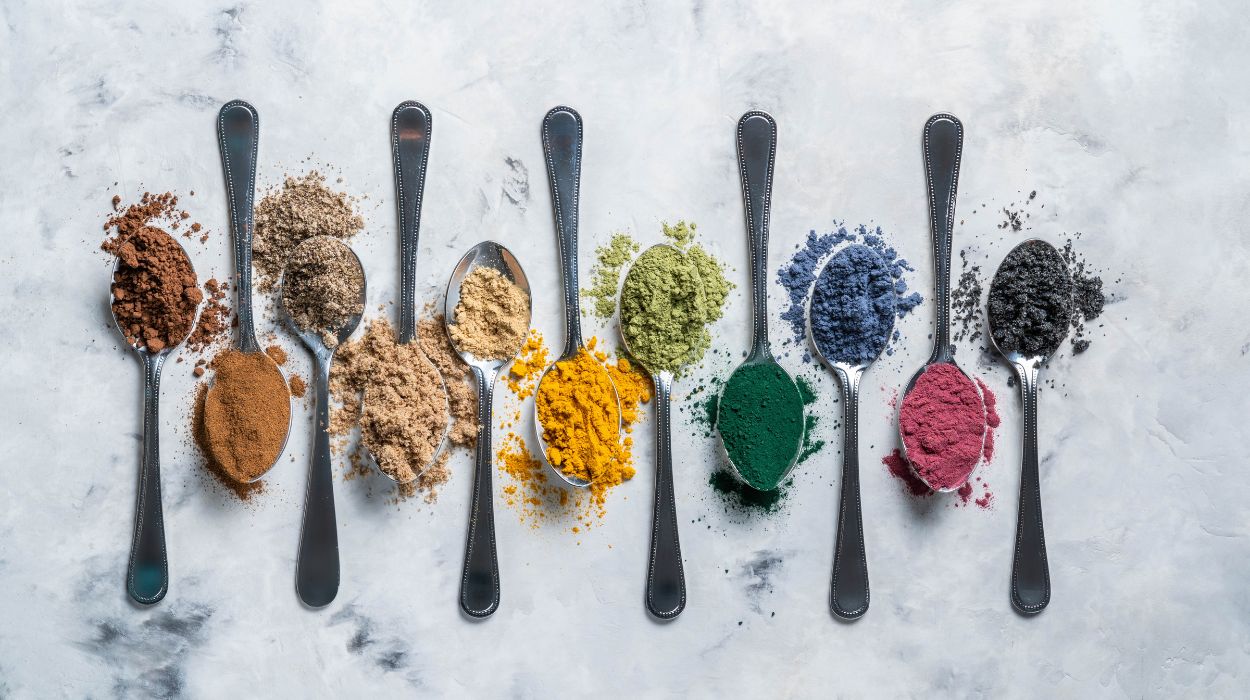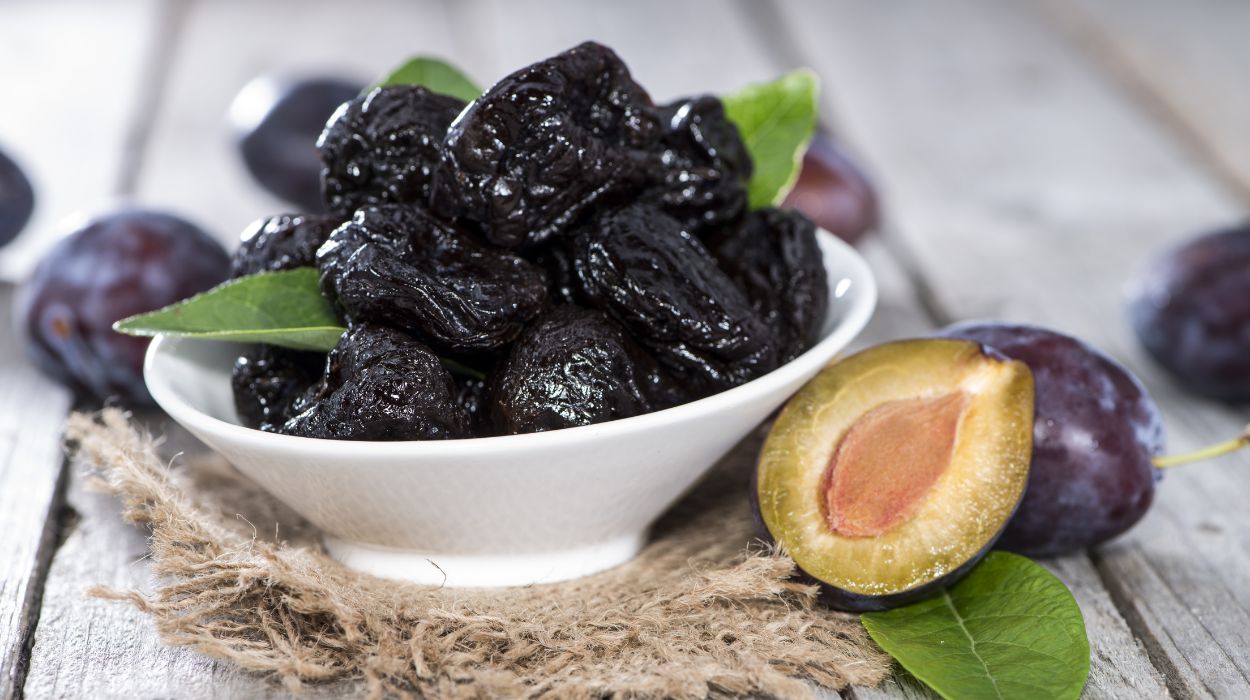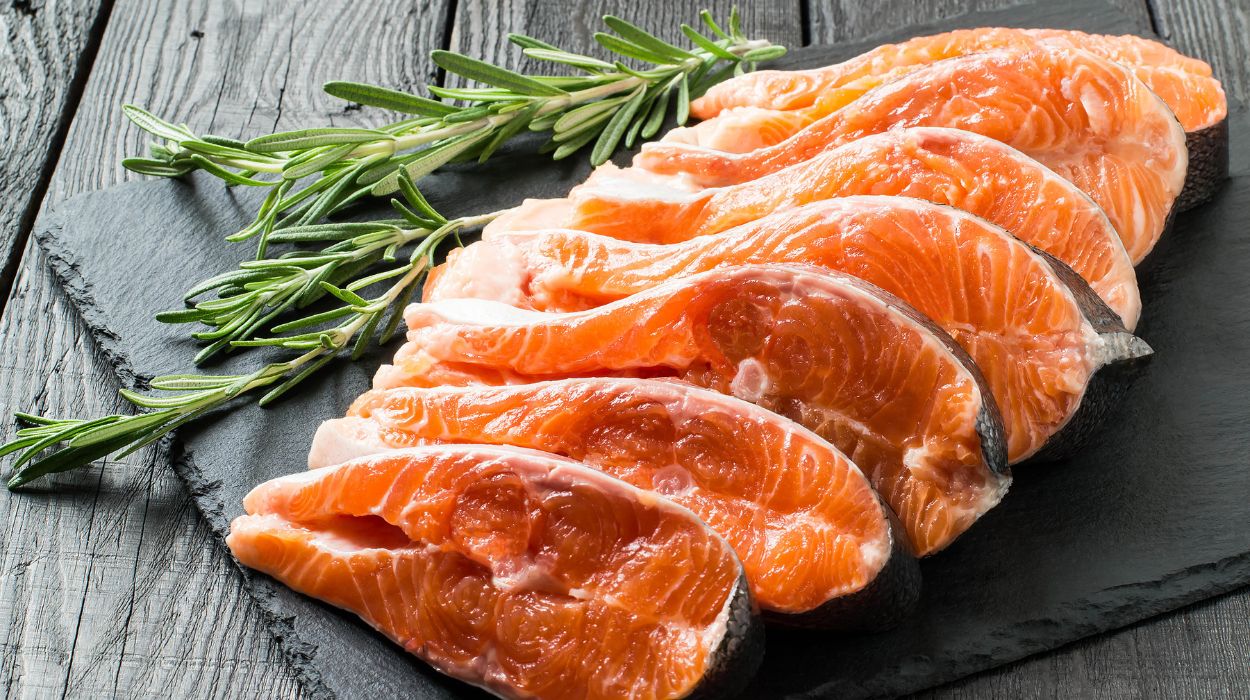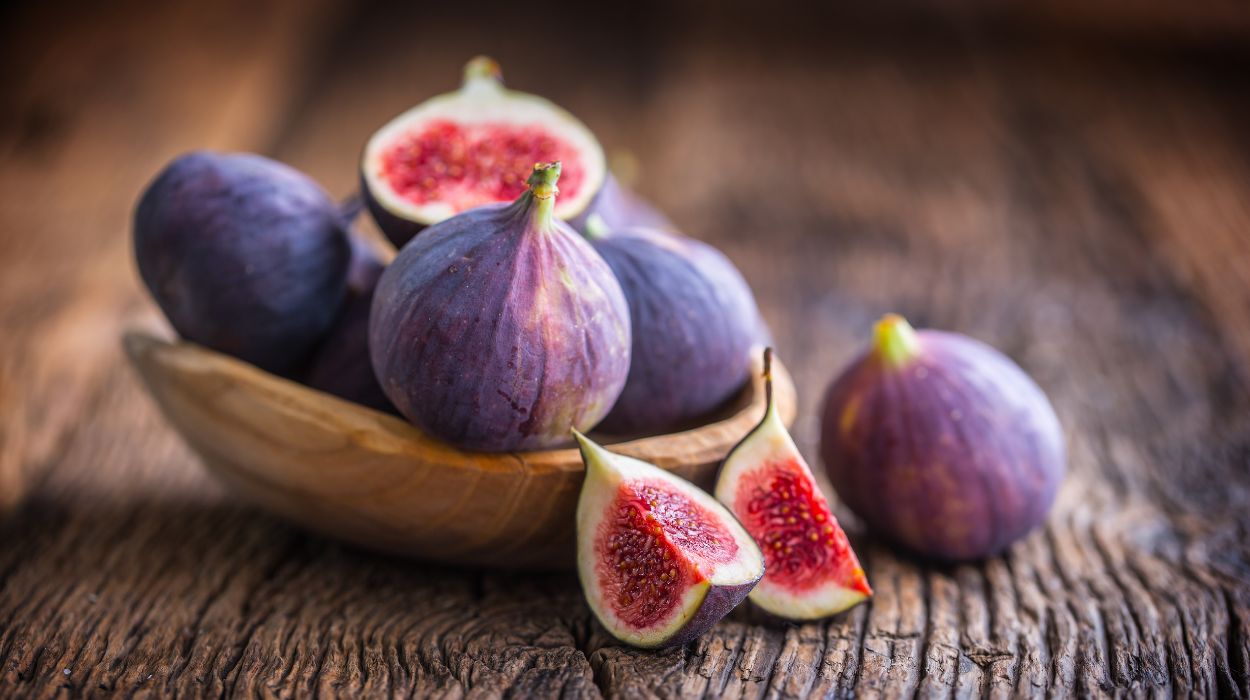 Expert's opinion
Expert's opinion
Expert's opinion
The article is a subjective view on this topic written by writers specializing in medical writing.
It may reflect on a personal journey surrounding struggles with an illness or medical condition, involve product comparisons, diet considerations, or other health-related opinions.
Although the view is entirely that of the writer, it is based on academic experiences and scientific research they have conducted; it is fact-checked by a team of degreed medical experts, and validated by sources attached to the article.
The numbers in parenthesis (1,2,3) will take you to clickable links to related scientific papers.
Superfoods For Strong Bones 2024: 10 Best Foods For Osteoporosis

Sometimes people overlook bone health because, like the old saying, “out-of-sight, out-of-mind,” you don’t see your bones. Bones are living tissue that regenerates, a turnover that replaces old bone with new bone.
As you get older, you start to experience bone loss, and you can lose the strength you once had. If your body doesn’t have the nutrients to keep up with the bone loss by creating new bone, you may experience osteoporosis like millions of other people.
Osteoporosis[1] is a bone disease characterized by bone density loss to the point that bones become weak and brittle, making bone fractures more likely. With aging, bone loss may be inevitable, so making sure you have enough calcium intake is worth prioritizing.
Experts recommend an osteoporosis diet of at least 1,200 milligrams of calcium per day.
Let’s review the top 10 bone-building superfoods for maintaining a robust skeletal system.
10 Best Superfoods For Osteoporosis
Here are the top 10 superfoods for strong bones that contain calcium and vitamin D to help your bones continue to regenerate and fight off osteoporosis.
- Collagen
- Superfood powders
- Tofu
- Dried plums
- Dark green leafy vegetables
- Fatty fish
- Nuts and seeds
- Citrus fruits
- Figs
- Fortified foods
10 Best Superfoods For Strong Bone
Calcium makes up about 40% of our bones[2]. This list of superfoods for strong bones contains not only calcium but other vitamins and minerals needed for the crucial turnover process of a positive bone creation/bone resorption ratio.
Collagen
This bone superfood is an essential protein and doesn’t just keep your bones healthy; it helps create healthy skin, hair, nails, muscles, and tendons, too. Your body produces collagen with the right type and amount of nutrition, but as you age you start to make less of it, so adding it to your diet can improve your overall health.
Typically collagen is found in animal products, and plant foods help to increase its production. Bone broth and gelatin are also natural sources of collagen. Collagen contains calcium and phosphorus, essential nutrients that form the molecular crystals of bone structure and thus keep your bones strong.
Superfood Powders

Green and red superfood powders contain more than just bone-building calcium. Powders include the nutrients you need to absorb the most calcium for bone strength you can, like magnesium, potassium, and vitamin D.
There is even powder for bone health that contains more than one form of calcium! Superfood powders are intentionally high in vitamins, minerals, and antioxidants that fight cell-damaging free radicals.
Some powders contain bone-boosting add-ins like bone broth and collagen. You can blend superfood powders with water, juice, or milk. You can use these greens in your salad dressing, smoothies, omelets, or baked into meals.
Or, if you enjoy DIY methods, here’s a recipe to help you create your at-home superfood powder! You’ll need greens of your choice, a dehydrator, and a blender.
DIY Superfood Powder:
- Clean your greens by letting them sit for a few minutes in water with a cup or two of vinegar. Rinse off and shake dry.
- Cut the vegetables into small pieces and arrange them on your dehydrator tray. Run the dehydrator on your herb setting or at 110 degrees.
- Process the greens into powder form with a blender or grinder.
- Store in an airtight container in a cool, dry place and enjoy the benefits!
Tofu

Talk about a superfood high in calcium! A half-cup serving of tofu brings in about 861 milligrams[3] of calcium to support bone health, over 50% of the recommended daily intake.
Tofu is a plant food from soybeans that originated in China. Since it has 21 milligrams of protein per serving and is rich in iron, vitamin K, and many essential amino acids that your body needs, it is commonly a vegetarian replacement for animal meat.
You can find soft versions called silken tofu that can easily blend into soups, drinks, or desserts. When you use firmer tofu, you can make it the star of a stir fry, rice bowl, or hearty salad. You can level up the flavor of tofu by adding seasoning the same way you would meat dishes.
Dried Plums

Dried plums are, simply put, prunes. Eating this fruit is good for more than just digestive health.
While dried plums contain almost 75 milligrams of calcium per cup serving size, they also contain vitamin K, vitamin C, and magnesium. These are some of the other nutrients essential for absorbing calcium and building strong bones.
This study shows the potential prunes have for increasing bone health. A group of men received instruction to eat 10-12 prunes each day for a year, and the other group did not eat prunes.
When the study concluded, the researchers found the men who consumed prunes had more bone-protective effects compared to those without prunes.
Dark Green Leafy Vegetables
Leafy green vegetables are one of the best superfoods to help prevent bone disease. You can find these at a local grocery store, or farmer’s market, or grow some in a backyard garden.
Dark greens contain high amounts of calcium. For example, one cup of cooked collard greens has 266 milligrams of calcium, and kale brings in 179 milligrams per cooked cup.
Bok choy is a nutritious type of Chinese cabbage containing calcium, magnesium, and vitamin C, which also help promote your natural collagen production and maintain bone mineral density.
Being deficient in magnesium puts one at increased risk for fractures and brittle, weak bones since it is important in the positive bone creation/resorption ratio. Vitamin D is essential for healthy bones and muscles. It plays a significant role in protecting bone mass by effectively absorbing the calcium needed.
In addition, vitamin K can increase[4] bone mineral density and reduce the risk of fractures and osteoporosis.
A few examples of leafy green vegetables you can add to enrich your diet are
- Beet greens
- Broccoli
- Dandelion greens
- Mustard greens
- Okra
- Turnip greens
Fatty Fish

In the list of superfoods for strong bones, fatty fish is a bone health superfood for many reasons.
- It is high in calcium. Three ounces of canned sardines with bones contain 324 milligrams of calcium. Fish dishes with bones have higher calcium levels, making canned salmon another great choice.
- They contain adequate vitamin D to assist with calcium absorption.
- The omega-3 fatty acids it contains may also reduce bone breakdown and have shown a positive impact[5] on skeletal health. Both tuna and catfish are good sources of this.
- Studies show[6] that fish oil supplements have the potential to reduce bone loss and prevent osteoporosis.
Nuts And Seeds
When you need to eat a healthy, superfood snack, reaching for nuts and seeds can benefit your bones. They also have fatty acids and fiber that can assist with weight loss. If you eat just one tablespoon of sesame seeds, you consume around 88 milligrams of calcium. They also have phosphorus, potassium, and iron to help absorb the calcium you consume.
Almond butter is one easy way to add nuts to your diet. Two tablespoons of almond butter contain 111 milligrams of calcium[7]. You can add this to your smoothies or create an AB and J (almond butter jelly) sandwich.
Citrus Fruits
Citrus fruits contain calcium and are high in vitamin C, potentially preventing bone loss. One cup of orange juice has 349 milligrams of calcium. Here’s a smoothie recipe combining several superfoods to create a drink that nourishes your bones and whole body!
Bone Building Calcium Smoothie
Ingredients:
- Half a cup of almond milk
- One cup of kale
- Half a cup of orange juice
- ¼ of a lemon
Blend all the ingredients in a high-speed blender and enjoy the health benefits!
Figs

Figs are another food you can eat for healthy bones. Figs are sweet fruits grown on trees that come with many benefits. These are high in potassium, iron, calcium, vitamin C, and vitamin K. They have 241 milligrams of calcium per cup serving.
Their high amount of vitamin K helps create a superfood that works to improve bone health and prevent osteoporosis. You can buy figs fresh during their growing season or dry, year-round.
Fortified Foods
Fortified foods are foods with added nutrients. Calcium and vitamin D are two of the most common vitamins and minerals you’ll find added.
Many dairy products, bread, and plant “milk” products are fortified foods. It may surprise you that almond milk can average over 500 milligrams of calcium per cup, while dairy milk contains 305 milligrams per cup.
Fortified foods are not only enriched with calcium but also contain vitamin D (the “sunshine vitamin).” Consuming foods with these added can increase your vitamin D level and may help prevent osteoporosis[8].
The Bottom Line
What you do and don’t consume can create or damage healthy bones. For example, eating foods high in salt or drinking alcohol and too many caffeinated beverages can affect how much calcium your bones absorb.
While women are at a higher risk of osteoporosis than men, both genders should be proactive in keeping bone-building nutrients in their diet. Foods with vitamin D, magnesium, and potassium, like dark leafy greens or collagen, will help your body absorb the calcium you need.
So what are you waiting for? Grab a glass of orange juice, milk, superfood powder, or any in our list of superfoods for strong bones, and treat yourself to the bone-strengthening calcium you deserve.
+ 8 sources
Health Canal avoids using tertiary references. We have strict sourcing guidelines and rely on peer-reviewed studies, academic researches from medical associations and institutions. To ensure the accuracy of articles in Health Canal, you can read more about the editorial process here
- Nih.gov. (2019). Osteoporosis Overview | NIH Osteoporosis and Related Bone Diseases National Resource Center. [online] Available at: https://www.bones.nih.gov/health-info/bone/osteoporosis/overview
- US), M. (2022). Calcium. [online] Nih.gov. Available at: https://www.ncbi.nlm.nih.gov/books/NBK109827/
- Usda.gov. (2022). FoodData Central. [online] Available at: https://fdc.nal.usda.gov/fdc-app.html#/food-details/172475/nutrients
- Rodríguez-Olleros Rodríguez, C. and Díaz Curiel, M. (2019). Vitamin K and Bone Health: A Review on the Effects of Vitamin K Deficiency and Supplementation and the Effect of Non-Vitamin K Antagonist Oral Anticoagulants on Different Bone Parameters. Journal of Osteoporosis, [online] 2019, pp.1–8. doi:10.1155/2019/2069176.
- Orchard, T.S., Pan, X., Cheek, F., Ing, S.W. and Jackson, R.D. (2012). A systematic review of omega-3 fatty acids and osteoporosis. British Journal of Nutrition, [online] 107(S2), pp.S253–S260. doi:10.1017/s0007114512001638.
- Clinicaltrials.gov. (2022). Effects of Omega-3 Fatty Acids on Bone and Frailty – Full Text View – ClinicalTrials.gov. [online] Available at: https://clinicaltrials.gov/ct2/show/NCT00634686
- Usda.gov. (2022). FoodData Central. [online] Available at: https://fdc.nal.usda.gov/fdc-app.html#/food-details/168603/nutrients
- Whiting, S.J., Kohrt, W.M., Warren, M.P., Kraenzlin, M.I. and Bonjour, J-P. (2016). Food fortification for bone health in adulthood: a scoping review. European Journal of Clinical Nutrition, [online] 70(10), pp.1099–1105. doi:10.1038/ejcn.2016.42.



